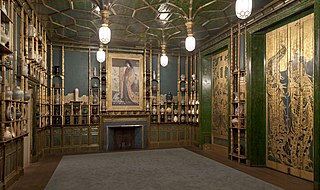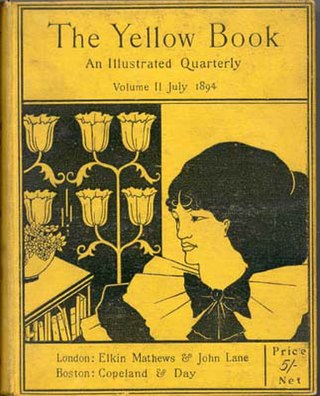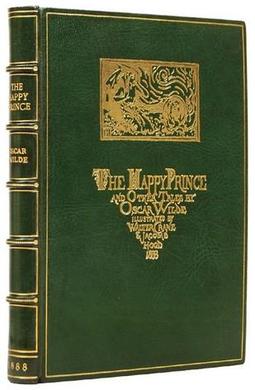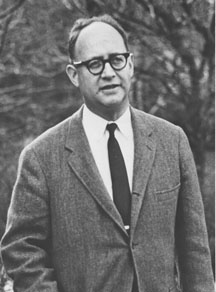
Oscar Fingal O'Fflahertie Wills Wilde was an Irish poet and playwright. After writing in different forms throughout the 1880s, he became one of the most popular playwrights in London in the early 1890s. He is best remembered for his epigrams and plays, his novel The Picture of Dorian Gray, and the circumstances of his criminal conviction for gross indecency for consensual homosexual acts in "one of the first celebrity trials", imprisonment, and early death from meningitis at the age of 46.

The Importance of Being Earnest, A Trivial Comedy for Serious People is a play by Oscar Wilde. First performed on 14 February 1895 at the St James's Theatre in London, it is a farcical comedy in which the protagonists maintain fictitious personae to escape burdensome social obligations. Working within the social conventions of late Victorian London, the play's major themes are the triviality with which it treats institutions as serious as marriage and the resulting satire of Victorian ways. Some contemporary reviews praised the play's humour and the culmination of Wilde's artistic career, while others were cautious about its lack of social messages. Its high farce and witty dialogue have helped make The Importance of Being Earnest Wilde's most enduringly popular play.

The Picture of Dorian Gray is a philosophical novel by Irish writer Oscar Wilde. A shorter novella-length version was published in the July 1890 issue of the American periodical Lippincott's Monthly Magazine. The novel-length version was published in April 1891.

Aestheticism was an art movement in the late 19th century which privileged the aesthetic value of literature, music and the arts over their socio-political functions. According to Aestheticism, art should be produced to be beautiful, rather than to serve a moral, allegorical, or other didactic purpose, a sentiment exemplified by the slogan "art for art's sake." Aestheticism originated in 1860s England with a radical group of artists and designers, including William Morris and Dante Gabriel Rossetti. It flourished in the 1870s and 1880s, gaining prominence and the support of notable writers such as Walter Pater and Oscar Wilde.
This article contains information about the literary events and publications of 1895.

Jane Francesca Agnes, Lady Wilde was an Irish poet under the pen name Speranza and supporter of the nationalist movement. Lady Wilde had a special interest in Irish folktales, which she helped to gather and was the mother of Oscar Wilde and Willie Wilde.

The Yellow Book was a British quarterly literary periodical that was published in London from 1894 to 1897. It was published at The Bodley Head Publishing House by Elkin Mathews and John Lane, and later by John Lane alone, and edited by the American Henry Harland. The periodical was priced at 5 shillings and lent its name to the "Yellow Nineties", referring to the decade of its operation.

James Rennell Rodd, 1st Baron Rennell,, known as Sir Rennell Rodd before 1933, was a British diplomat, poet and politician. He served as British Ambassador to Italy during the First World War.

The Happy Prince and Other Tales is a collection of stories for children by Oscar Wilde first published in May 1888. It contains five stories: "The Happy Prince," "The Nightingale and the Rose," "The Selfish Giant," "The Devoted Friend," and "The Remarkable Rocket." In 2003, the second through fourth stories were adapted by Lupus Films and Terraglyph Interactive Studios into the three-part series Wilde Stories for Channel 4.

Philip Craig Russell is an American comics artist, writer, and illustrator. His work has won multiple Harvey and Eisner Awards. Russell was the first mainstream comic book creator to come out as openly gay.

Richard David Ellmann, FBA was an American literary critic and biographer of the Irish writers James Joyce, Oscar Wilde, and William Butler Yeats. He won the U.S. National Book Award for Nonfiction for James Joyce (1959), which is one of the most acclaimed literary biographies of the 20th century. Its 1982 revised edition was similarly recognised with the award of the James Tait Black Memorial Prize. Ellmann was a liberal humanist, and his academic work focused on the major modernist writers of the twentieth century.

The Trials of Oscar Wilde, also known as The Man with the Green Carnation and The Green Carnation, is a 1960 British drama film based on the libel and subsequent criminal cases involving Oscar Wilde and the Marquess of Queensberry. It was written by Allen and Ken Hughes, directed by Hughes, and co-produced by Irving Allen, Albert R. Broccoli and Harold Huth. The screenplay was by Ken Hughes and Montgomery Hyde, based on an unperformed play The Stringed Lute by John Furnell. The film was made by Warwick Films and released by Eros Films.
"The Decay of Lying – An Observation" is an essay by Oscar Wilde included in his collection of essays titled Intentions, published in 1891. This is a significantly revised version of the article that first appeared in the January 1889 issue of The Nineteenth Century.

The Illustrated Sporting and Dramatic News was a British weekly magazine founded in 1874 and published in London. In 1945 it changed its name to the Sport and Country, and in 1957 to the Farm and Country, before closing in 1970.

Hans Henning Otto Harry Baron von Voigt, best known by his nickname Alastair, was a German artist, composer, dancer, mime, poet, singer and translator.
Anti-mimesis is a philosophical position that holds the direct opposite of Aristotelian mimesis. Its most notable proponent is Oscar Wilde, who opined in his 1889 essay The Decay of Lying that, "Life imitates Art far more than Art imitates Life". In the essay, written as a Platonic dialogue, Wilde holds that anti-mimesis "results not merely from Life's imitative instinct, but from the fact that the self-conscious aim of Life is to find expression, and that Art offers it certain beautiful forms through which it may realise that energy."

The Oscar Wilde Memorial Sculpture is a collection of three statues in Merrion Square in Dublin, Ireland, commemorating Irish poet and playwright Oscar Wilde. The sculptures were unveiled in 1997 and were designed and made by Danny Osborne.
Inga Moore is an Anglo-Australian author and illustrator of books for children.
Vera Bock was a Russian Empire-born artist who spent most of her career in the United States. She is known for her book illustrations and for the posters she made for the Works Progress Administration during the Great Depression.

The Sphinx is a 174-line poem by Oscar Wilde, written from the point of view of a young man who questions the Sphinx in lurid detail on the history of her sexual adventures, before finally renouncing her attractions and turning to his crucifix. It was written over a period of twenty years, stretching from Wilde's years as an Oxford student up to the poem's publication in an édition de luxe in 1894. The Sphinx drew on a wide range of sources, both ancient and modern, but particularly on various works of the French Decadent movement. Though at first coldly received by critics it is now generally recognized as Wilde's finest Decadent poem, and has been described as "unrivalled: a quintessential piece of fin-de-siècle art".















